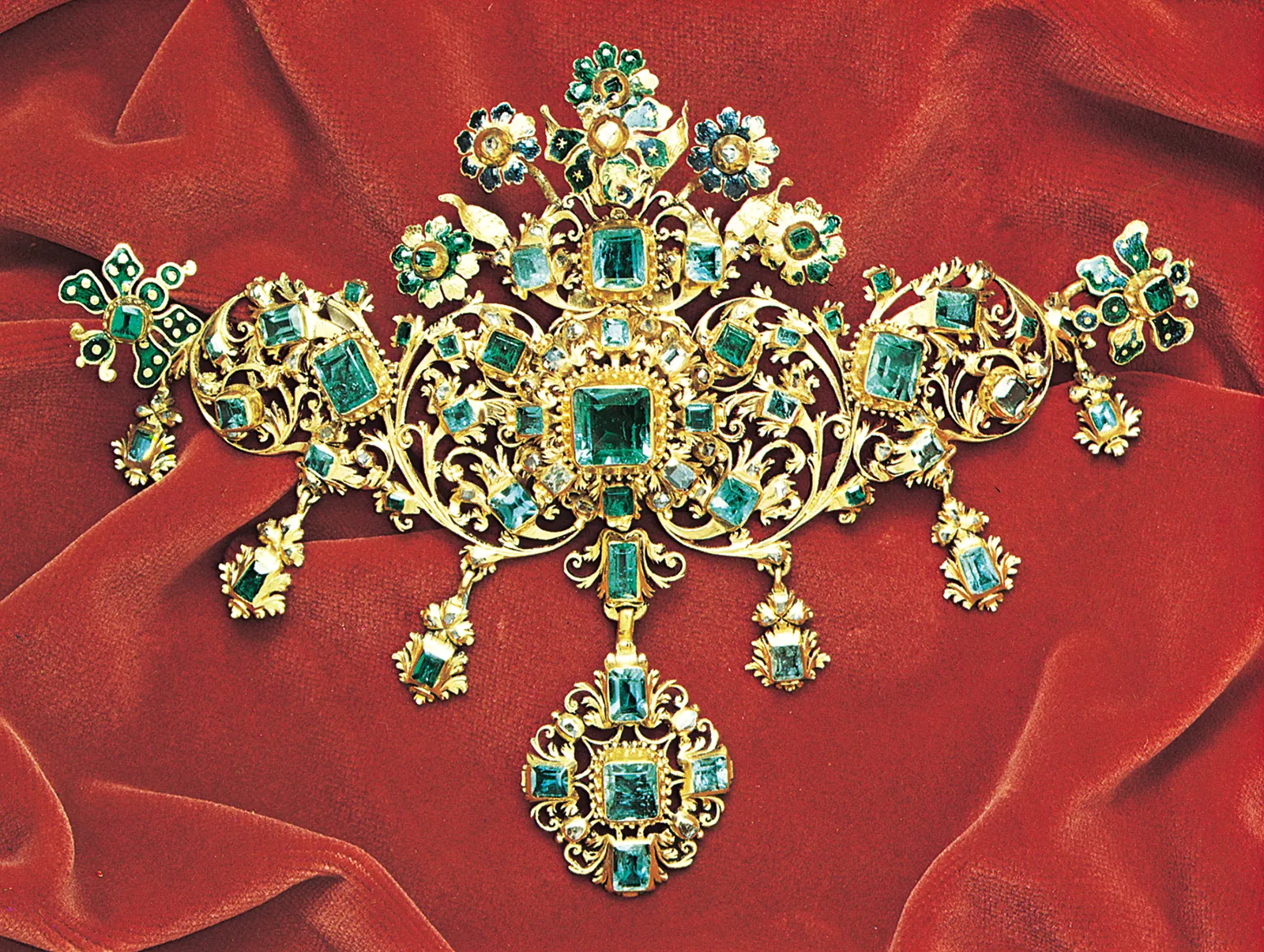Crafting bespoke jewelry involves creating unique pieces tailored to individual preferences and stories. This personalized approach ensures each piece holds sentimental value and reflects the wearer’s personality. Bespoke jewelry offers a chance to celebrate special occasions or milestones with distinctive designs that resonate on a personal level.
What Is Bespoke Jewelry?
Bespoke jewelry refers to custom-made pieces designed and created to meet customers’ requirements. Unlike mass-produced items, tailored pieces are unique and personalized. This type of jewelry allows individuals to own pieces that reflect their style and preferences. Whether it’s a wedding ring, necklace, or other accessory, bespoke jewelry captures the wearer’s individuality. A great example of this is custom moissanite jewelry. Customers can ensure their jewelry is as unique as the moments they commemorate by choosing bespoke options. The process involves close collaboration between the client and the jeweler, ensuring that every detail is tailored to the client’s desires.
The significance of bespoke jewelry extends beyond just aesthetics. Each piece often tells a story or represents a memory, making it more than an accessory. Whether incorporating a birthstone, a unique engraving, or a specific design element, bespoke jewelry carries a piece of the client’s history, making it a treasured item for years.
Historical Significance of Custom Jewelry
Custom jewelry has been a symbol of status, wealth, and personal expression throughout history. Monarchs and nobles often commissioned unique pieces to showcase their power and taste. For example, ancient Egyptians adorned themselves with intricate jewelry that signified their social standing and religious beliefs. These pieces were accessories and valuable indicators of the wearer’s role and importance in society. The tradition of creating custom pieces dates back to ancient civilizations where intricate gold and gemstone work was a privilege of the elite.
This tradition of personalization continues today, with custom pieces often carrying deep personal significance and storytelling. Modern bespoke jewelry offers the same prestige and exclusivity but is accessible to a broader range of people. It enables people to showcase their individuality and essential life events visually and artistically.
The Process of Creating Bespoke Jewelry
The journey of crafting bespoke jewelry involves multiple stages:
- Conceptualization: The process starts with an idea, often inspired by something meaningful to the client. This could be a particular date, a personal achievement, or a loved one. During this phase, the jeweler and the client engage in detailed discussions to capture what the client desires.
- Design: A designer creates sketches or digital renderings once the concept is clear. This is an iterative process with client feedback. The design phase ensures that the idea is translated into a visual form and may involve several revisions until the client is satisfied.
- Material Selection: Choosing suitable materials, from metals to gemstones, is crucial. High-quality materials ensure durability and beauty. Clients can choose meaningful or desirable gemstones from various precious metals, such as gold, platinum, or silver.
- Crafting: Expert craftspeople execute the design with meticulous attention to detail. This involves meticulous work and a high level of craftsmanship, often requiring specialized metalworking and gem-setting skills.
- Gemstone Setting: If the piece includes gemstones, they are carefully set to maximize their brilliance. The setting process requires precision to ensure that the stones are secure and displayed in a way that enhances their natural beauty.
- Final Adjustments: The piece undergoes final inspections and adjustments to meet the client’s vision. This stage involves fine-tuning details and ensuring the piece fits perfectly and meets the highest quality standards.
Why Choose Bespoke Over Mass-Produced Jewelry?
One of the primary reasons people opt for bespoke jewelry is the opportunity to express individuality. Custom items can be cherished treasures passed down through the years and frequently have sentimental importance. Unlike mass-produced jewelry, bespoke pieces are designed to a client’s specifications, ensuring a perfect fit and unique style. Additionally, bespoke jewelry often features better craftsmanship. Artisans who create custom pieces usually take great pride in their work, ensuring each item meets the highest standards. This results in superior quality compared to mass-produced alternatives.
Furthermore, bespoke jewelry provides the unique opportunity to create something entirely original. Clients can work with designers to develop a piece that reflects their style and story. This collaboration results in a piece that is not only beautiful but also meaningful. Additionally, opting for bespoke jewelry means that every piece is a unique creation, ensuring that the wearer owns something unique.
Impact of Materials and Gemstones
The choice of materials and gemstones plays a significant role in the final product’s aesthetic and quality. Unique gemstones and high-quality metals ensure a one-of-a-kind creation that stands the test of time. When selecting materials, it’s essential to consider their durability, color, and symbolic meaning. For instance, moissanite has become a sustainable and equally brilliant alternative to diamonds.
The material choice also impacts the look and feel of the jewelry. Precious metals like gold and platinum are known for their durability and timeless appeal—gemstones, whether diamonds, sapphires, or emeralds, add brilliance and color to the design. The selection process involves looking at hardness, color grade, and clarity to ensure the final piece looks stunning and stands the test of time.
Ethical Considerations in Jewelry Making
Consumers are increasingly crucial in choosing ethically sourced materials. Ensuring that gemstones and metals are sourced responsibly helps promote sustainable practices within the industry. Ethical considerations also include fair labor practices and environmentally friendly methods. For example, conflict-free diamonds and recycled metals greatly minimize their environmental footprint. Relevant resources can be found through organizations like Artnet News.
There has been a growing awareness and demand for ethically sourced jewelry in recent years. Consumers are more informed about the impact of their purchases and are seeking out jewelers who prioritize sustainability and ethical practices. As a result of this change, the industry is moving toward more ethical and transparent sourcing practices, which is good for the environment and the communities where the products are produced.
How to Choose a Jeweler for Bespoke Pieces
When choosing a jeweler, consider their experience, design portfolio, customer reviews, and willingness to collaborate. Research a jeweler with a strong reputation and positive reviews for insight into customer service and skill level. Look at their prior work to see if it fits your vision. Arrange a meeting so you may share your thoughts and gauge how well they comprehend your requirements. Consider their expertise in crafting bespoke pieces, as experienced jewelers will likely create high-quality, detailed custom jewelry.
Caring for Bespoke Jewelry
To maintain the beauty and longevity of bespoke jewelry, it’s crucial to follow these care tips:
- Wipe with a gentle cloth and a mild soap mixture.
- Avoid harsh chemicals.
- Store pieces separately to prevent scratches and tangles, and have professional check-ups to address potential issues.
These steps ensure that your bespoke jewelry remains a cherished part of your collection, preserving its appearance, integrity, and sentimental and monetary value. Regular professional inspections can help prevent significant repairs and ensure your jewelry remains a valuable possession.
Keep an eye for more news & updates on BuzzsLash.Com!




